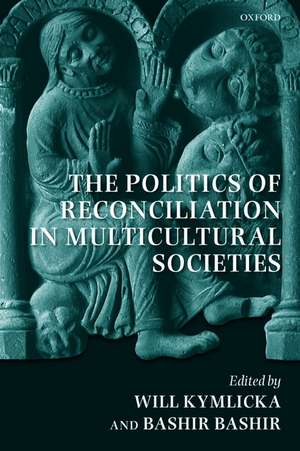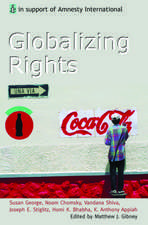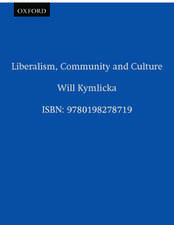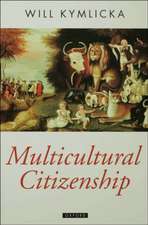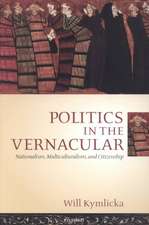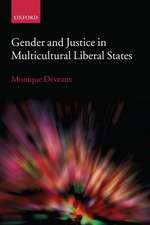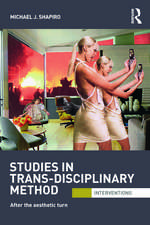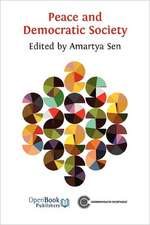The Politics of Reconciliation in Multicultural Societies
Editat de Will Kymlicka, Bashir Bashiren Limba Engleză Paperback – 29 iul 2010
| Toate formatele și edițiile | Preț | Express |
|---|---|---|
| Paperback (1) | 296.13 lei 31-37 zile | |
| OUP OXFORD – 29 iul 2010 | 296.13 lei 31-37 zile | |
| Hardback (1) | 353.30 lei 31-37 zile | |
| OUP OXFORD – 3 iul 2008 | 353.30 lei 31-37 zile |
Preț: 296.13 lei
Preț vechi: 322.38 lei
-8% Nou
Puncte Express: 444
Preț estimativ în valută:
56.67€ • 58.95$ • 46.79£
56.67€ • 58.95$ • 46.79£
Carte tipărită la comandă
Livrare economică 04-10 aprilie
Preluare comenzi: 021 569.72.76
Specificații
ISBN-13: 9780199587483
ISBN-10: 0199587485
Pagini: 258
Ilustrații: black & white illustrations
Dimensiuni: 156 x 234 x 16 mm
Greutate: 0.42 kg
Editura: OUP OXFORD
Colecția OUP Oxford
Locul publicării:Oxford, United Kingdom
ISBN-10: 0199587485
Pagini: 258
Ilustrații: black & white illustrations
Dimensiuni: 156 x 234 x 16 mm
Greutate: 0.42 kg
Editura: OUP OXFORD
Colecția OUP Oxford
Locul publicării:Oxford, United Kingdom
Notă biografică
Will Kymlicka is the Canada Research Chair in Political Philosophy at Queen's University, and the author of six books published by Oxford University Press: Liberalism, Community, and Culture (1989), Contemporary Political Philosophy (1990; second edition 2002), Multicultural Citizenship (1995), which was awarded the Macpherson Prize by the Canadian Political Science Association, and the Bunche Award by the American Political Science Association, Finding Our Way: Rethinking Ethnocultural Relations in Canada (1998), Politics in the Vernacular: Nationalism, Multiculturalism, Citizenship (2001), and Multicultural Odysseys: Navigating the New International Politics of Diversity (2007). He is a visiting professor in the Nationalism Studies program at the Central European University in Budapest. He is a Fellow of the Royal Society of Canada, and of the Canadian Institute For Advanced Research.Bashir Bashir is a post-doctorate fellow at the Department of Political Science at The Hebrew University of Jerusalem and a research fellow at The Van Leer Jerusalem Institute. He has a Ph.D. in Political Theory from the Government Department at the London School of Economics and Political Science (LSE). He obtained MSc in Political Theory from the LSE in 2000, and a B.A. in Political Science and in Sociology from the Hebrew University of Jerusalem (1998). He has taught political theory at the LSE, Queen's University and the Hebrew University. His primary research interests are democratic theories of inclusion, conflict-resolution and the politics of reconciliation, deliberative democracy, and multiculturalism.
